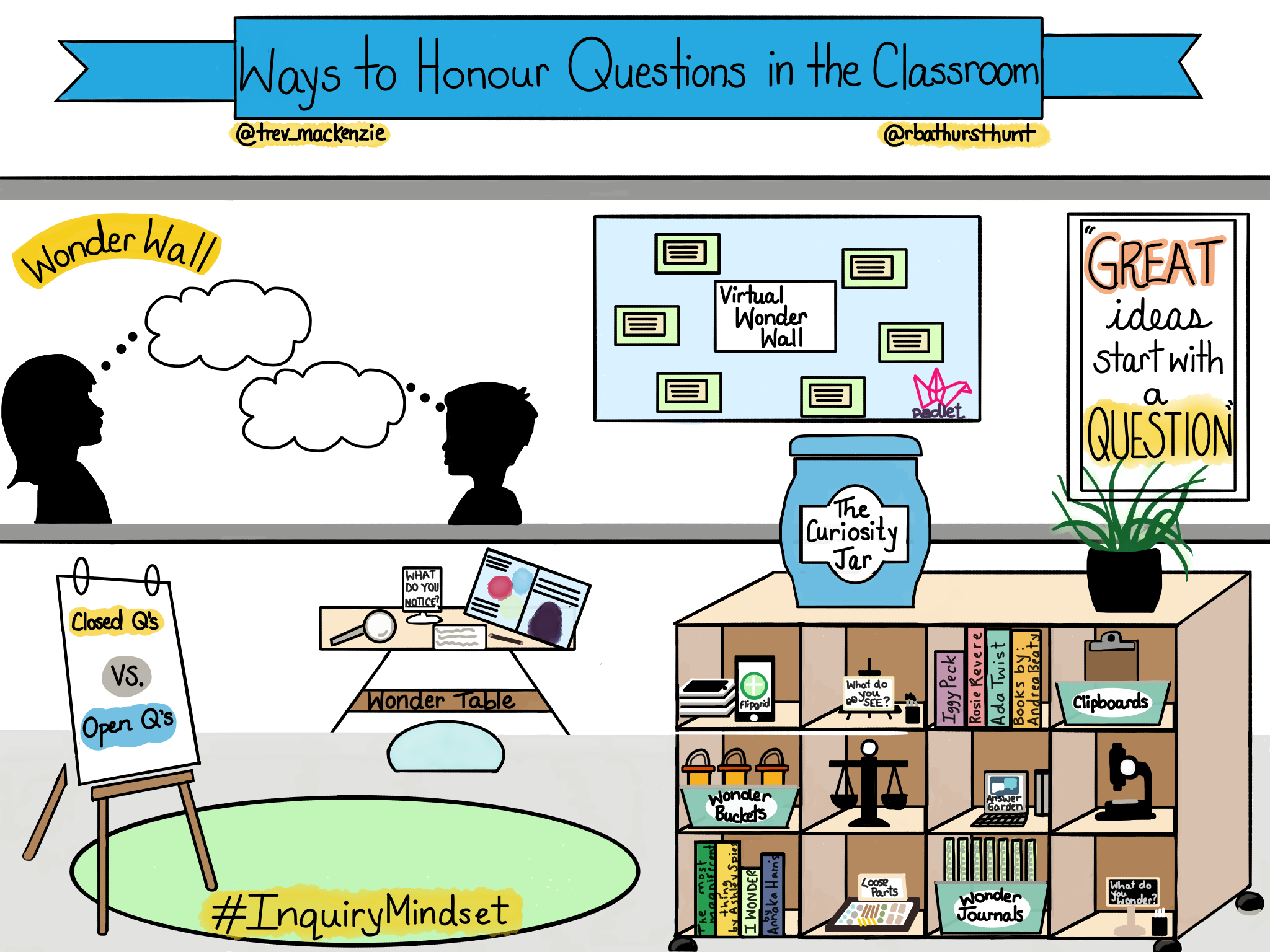
I cringe when I recall the memory of how I responded to my kindergartener. It was bedtime and I was trying to get him settled in for the same two stories we had been reading for the past month. I don’t know if he could tell I was not fully present in the moment but shortly after we started he interrupted me with an unrelated question. I was tired and was trying to get through the monotony of the story, so I shut it down. He started to cry.
Reflecting on this moment, I think about all of the unspoken messages I sent to him: I am in charge; we are on my schedule. I value your questions but only when they are convenient. Your curiosity is not as important as the content I am trying to cover. And the list doesn’t end there…it was not my finest parenting moment.
As educators, we deal with a similar scenario multiplied by the number of learners in our classrooms or programs every day. I wonder how many times I responded to students appropriately, supporting an inquiry mindset with responses like: “Why do you ask that?” or “Where does that question come from?”
I think about the times I say something in a conversation that seems completely random, like the question my son asked me. I find myself explaining to the other person my thought process—how what we were just talking about led me down a path to this other idea. These moments of questions from our students (and children) can help us as educators (and parents) learn so much about how they think. These moments can help us uncover misunderstandings or gain insight into these amazing humans we nurture daily.
During a conversation we had with Trevor MacKenzie, educator and co-author of Inquiry Mindset, he discussed ways to prioritize questions in the classroom. Watch this segment:
Many of us may not have experienced an inquiry-based education ourselves, so it is essential that we seek out opportunities to learn about effective questioning protocols so that we can respond to questions in ways that deepen students’ understanding. The Question Formulation Technique and the Beetles Project both have tools to help educators and students become better at asking questions. Two of the Beetles’ tools I especially like are meaning-making discussions and their support for guiding explorations.
As an educator and a parent, I am always learning, always striving to do better. My son’s tears brought me back to be fully present in the moment. After my apology and further discussion, the story continued with new engagement from both of us.
My son and our students are growing up in time when change is constant and questioning the world around them, always asking “why?” will help them process and understand. These children are our future leaders and change agents. Their ability to ask questions and apply new knowledge will be critical for their success in adulthood and for our society, and we help shape this future when we honor their questions in our classrooms.
Share your thoughts or get feedback in our educator community.
Victoria Rydberg, Guest Writer
Wisconsin Department of Public Instruction
Environmental Education and Service-Learning
Disclosure: Please note that we may use affiliate links to retailers which yield a commission for us at no extra cost to you. We only recommend products we've used that support our mission. As an Amazon Associate FIELD Edventures earns from qualifying purchases. Your purchases support taking learning outdoors.
